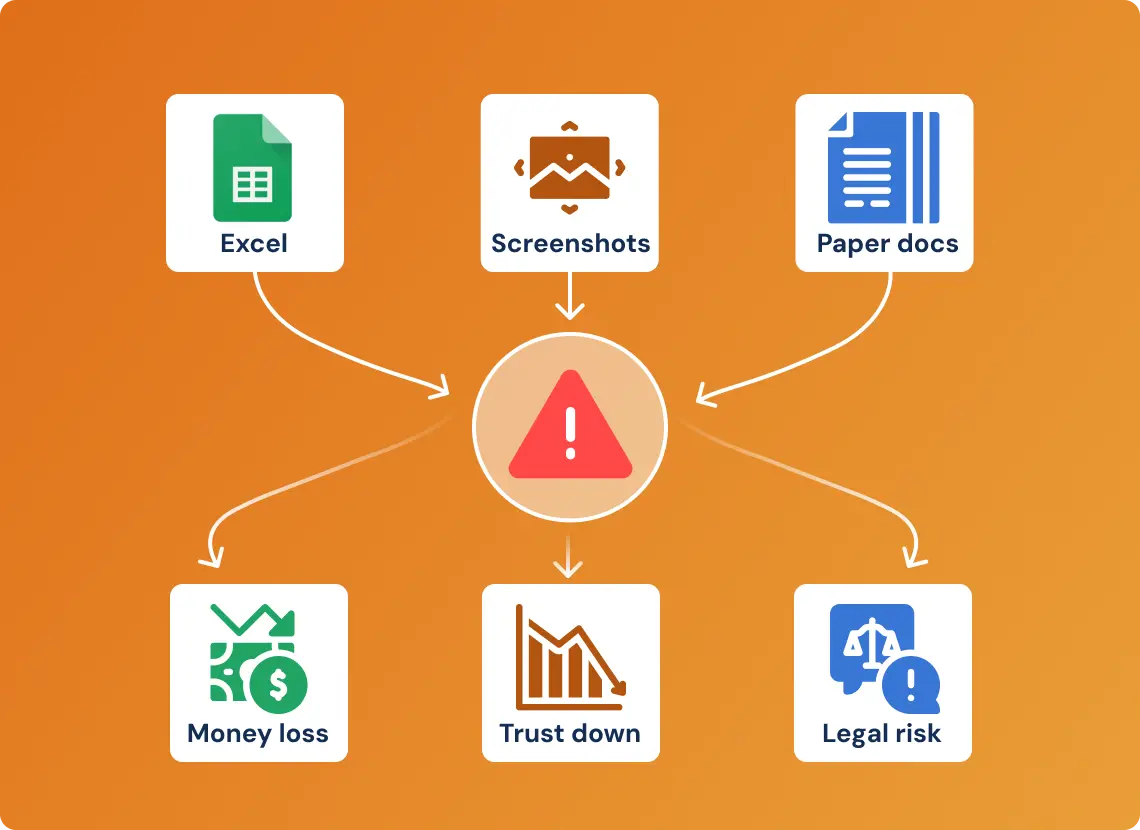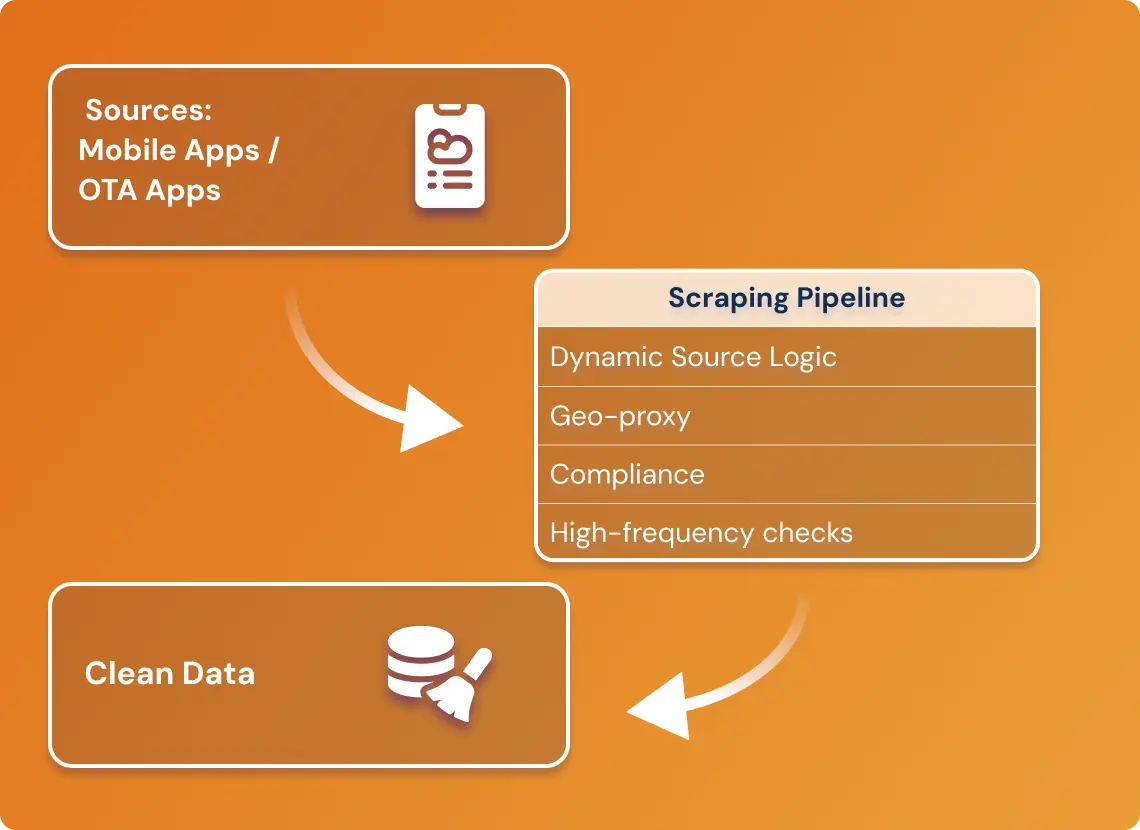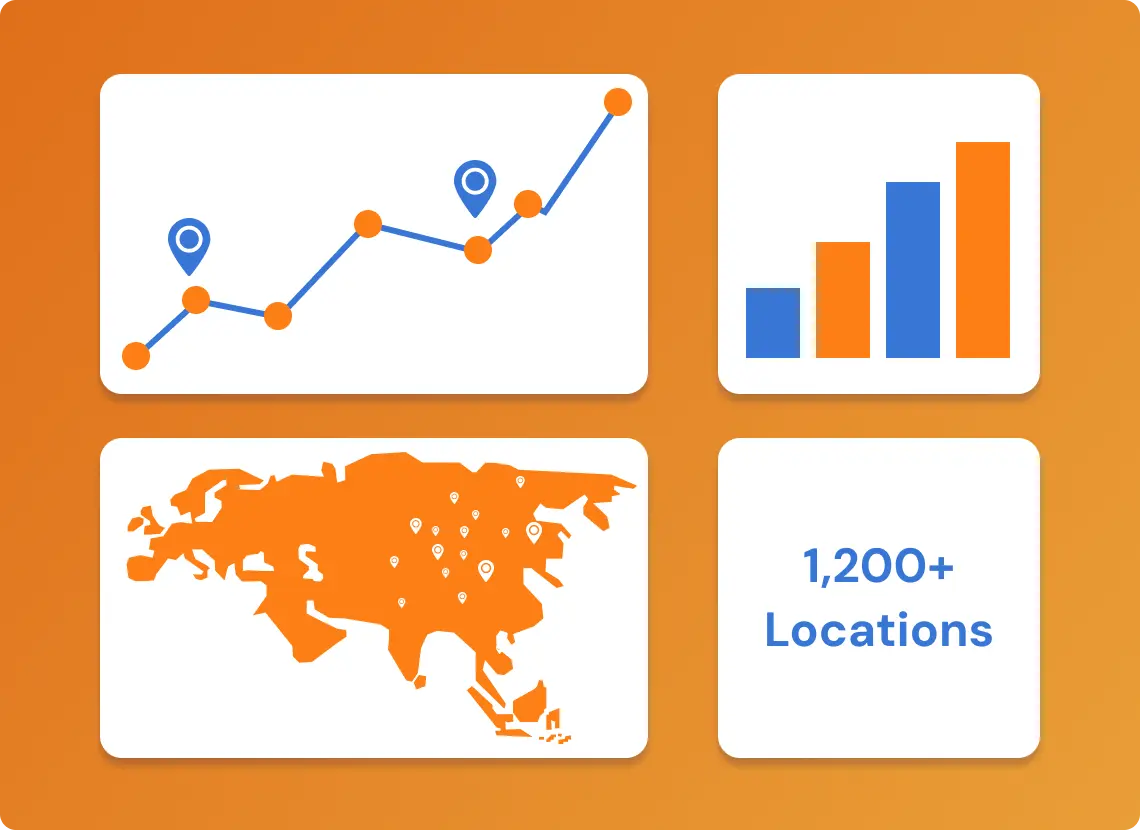
The Client Story
A regional data intelligence firm supplying mobility insights to logistics, smart cities, and investor clients needed to aggregate live ride-hailing data across Asia-Pacific. The team handled fragmented app environments (Uber, Gojek, ComfortDelgro, Grab, Tada) with different data models, content obfuscation, and geo-restrictions. All trip records were accessed via enterprise-level, legally permitted pathways provided by client partnerships and official integrations, ensuring compliance from the ground up.
Legacy pipelines couldn’t keep up. Manual spot-checks missed surge price fluctuations and changing fare zones. APIs were inconsistent or unavailable. Analysts were stuck refreshing apps, tracking screenshots, and transcribing fragmented outputs just to assemble one valid analytical record.
| Industry: | Automotive |
|---|---|
| Cooperation: | Since 2024 |
| Location: | APAC |
“Once we stopped chasing ‘more data’ and focused on usable records, the whole workflow changed. We could finally act, not only collect.” — Senior Data Analyst, Mobility Intelligence Vendor
“This wasn’t only about automation. It was a compliance-first process — every record had to meet audit requirements.” — Data Operations Manager, APAC Ride Aggregator
What Manual Tracking Missed (and Cost)
Legacy workflows included:
- Static lists of price zones updated monthly
- Screenshot-based validation from freelancers
- No structured logging or retry mechanism
- Zero alerting when ride estimates dropped out
This exposed the business to:
- Client distrust due to outdated fare maps
- Inaccurate vehicle availability heatmaps
- Revenue risk from missed surge periods
- Legal exposure from unstructured data handling

Compliance-First Scraping With Dynamic Source Logic
To address the volatility of mobile app environments, the team implemented a compliance-aware scraping pipeline. Data was collected via enterprise-level, legally permitted access pathways, ensuring no unauthorized or personal trip data was accessed.
- Dynamic source evaluation: Automated detection of price fields, zone metadata, and obfuscation layers
- Geo-specific proxy rotation: Maintains IP locality across regions without triggering rate limits
- Consent-based data exclusion: Excluded non-analytical fields in line with app Terms of Service, ensuring no sensitive data was processed
- High-frequency checks: Every 5 minutes, with version-aware selectors to ensure no silent breaks
Each aggregated record is tagged with a trip identifier and timestamped, with error logs retained per region, ensuring audit-readiness for enterprise partners and regulators.

We replaced 90% of manual logging with structured records — clean, repeatable, and ready for analytics.

How Real-Time Data Improved Strategic Allocation
The solution delivered high-fidelity ride data to the client’s data warehouse via RESTful API, enriching downstream dashboards used by:
- Pricing analysts for zone-based cost modeling
- Municipal partners optimizing taxi allocation per region
- Investors tracking regional app performance and price dynamics
Results:
- <10-minute latency from live scrape to analytics view
- 98% trip record validation with fallback retry
- 2,500+ aggregated trip records/day automated across 12 mobility apps
- 13h saved per analyst per week, previously spent verifying outputs

Compliance-First Taxi Data, Delivered Daily
Get mobility insights you can trust — compliant, aggregated, and ready for analytics use.

You have an idea?
We handle all the rest.
How can we help you?



